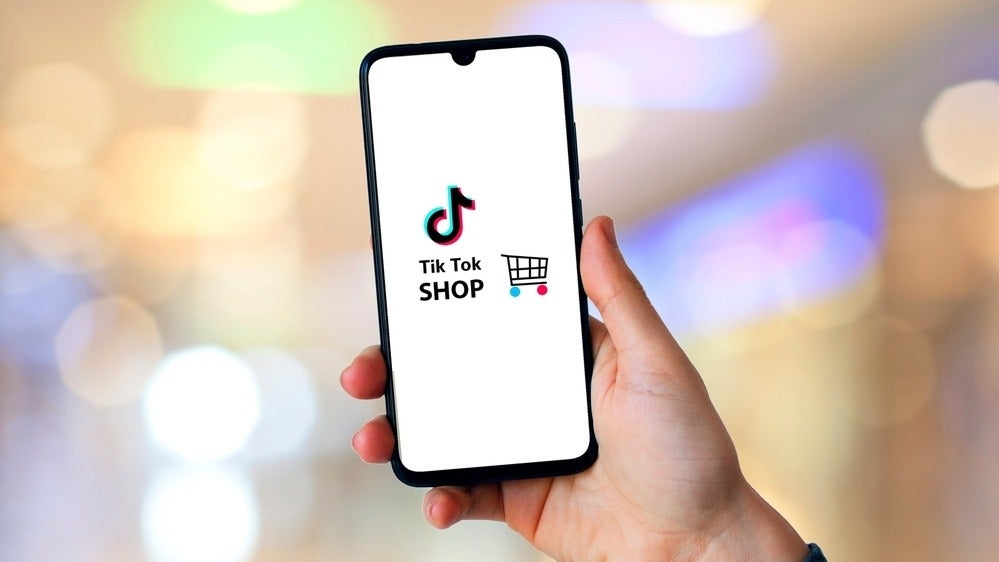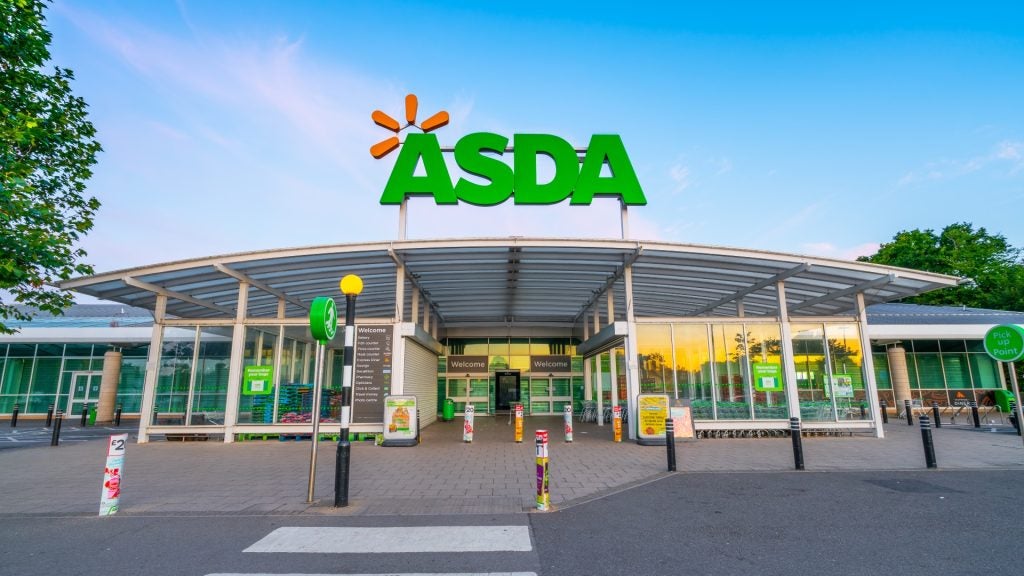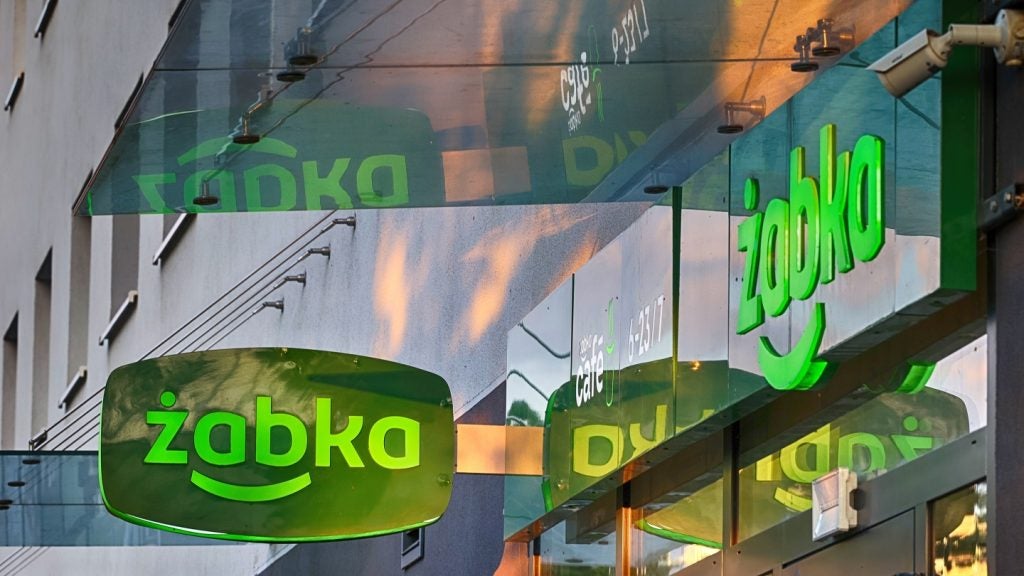TikTok Shop is an emerging major e-commerce threat, as it increasingly seeks to capitalise on its captive audience of 1.1 billion active users to convert user attention into sales.
TikTok officially launched its integrated e-commerce platform in the US last month, having debuted a beta version back in November 2022. TikTok Shop has already proved enormously popular in the UK and Southeast Asia, where TikTok racked up a gross merchandise value (GMV) of $4.4bn in 2022. The hashtag #TikTokMadeMeBuyIt has now accrued 75.3 billion views on the platform.
TikTok Shop has entered a highly competitive and significant market. GlobalData analytics show that e-commerce remains one of the most highly focused upon themes within the filings from companies within the retail sector, sitting just within the top 10 of over 50 that are tracked.
Despite this, and while still a small player compared to the likes of Southeast Asian competitors Shopee and Lazada, TikTok Shop is aiming to quadruple its GMV to $20bn this year and is angling for $470bn in e-commerce sales over the next five years.
Nico Le Bourgeois, one of two executives overseeing TikTok Shop in the United States, said in an interview with The New York Times: “We have a very aggressive plan to make a splash in the industry and make sure that people out there understand that TikTok is a place for shopping.”
Social commerce is not new, but it has been granted a facelift by TikTok, whose innovation was to allow consumers to shop directly from a shoppable in-feed video and to engage in one-click shopping. Beyond traditional product listings, the platform is also experimenting with features like shoppable quizzes and augmented reality (AR) try-ons.
Whole industries are now building up around the shoppable video phenomenon. Dystopian Chinese companies such as Ruhnn are “incubating” influencers, while a brief perusal of job boards reveals that companies are hiring TikTok Live Presenters on a seemingly grand scale.
Impact of TikTok Shop
Meanwhile, other e-commerce platforms are struggling to keep up. Amazon has been trying to grow its own take on live and social shopping with its Inspire feature and Amazon Live without much success. Some commentators suggest that, unlike TikTok, Amazon’s social commerce content is neither well-made nor entertaining and that Amazon’s failure in the realm of social commerce is due to the priority of its core feature – the search bar. That is, Amazon primarily caters to those who know what they are searching for, whereas TikTok uses a highly attuned recommendation algorithm to push the boundaries of users' interests.
In the approach to Black Friday and Christmas, Amazon may well lose out to TikTok, as the latter seeks to drive sales exclusively on its own platform for the first time. According to Marketplace Pulse, some brands are already seeing significant returns from their new focus on TikTok. Amazon-native Wyze reportedly sold nearly 40,000 units of a single $33.99 SKU on TikTok in September. Meanwhile, smaller brands such as Made by Mitchell have been catapulted to global TikTok Shop fame due to the virality of its video content. Nearly half a million units of the brand's viral Blursh have been sold at the time of writing.
Le Bourgeois told The New York Times that TikTok Shop in the US would "be very present for Black Friday and Cyber Monday through a combination of traffic, free shipping and deals."
Shopee and Alibaba are also starting to feel the heat of TikTok's disruption. Bloomberg has reported that, after becoming profitable for the first time in Q4 2022, Indonesia's largest e-commerce platform Shopee has had to reaccelerate investment to remain competitive in light of TikTok's regional growth, with revenue growth having decelerated to 21% in Q2 2023 – the slowest pace on record. Meanwhile, Chinese multinational Alibaba invested a further $845m into Lazada in July.
Social media commerce ban
The retail impact of TikTok Shop in Southeast Asia has been such that earlier this month, the Indonesian Ministry of Trade introduced new regulations to ban commerce on social media platforms in the country.
TikTok Shop in Indonesia had amassed 6 million sellers and 7 million influencers since its launch in 2021 and had hoped to generate about $6bn in gross merchandise value before the social commerce ban was placed.
Indonesia's Trade Minister Zulkifli Hasan said the ban aims to "prevent the domination of the algorithm and prevent the use of personal data in business interests" and "create a fair, healthy and beneficial electronic commerce ecosystem". It is also hoped that the ban will protect Indonesia’s 64 million micro, small and medium enterprises (MSMEs), which contribute 61% to the country’s gross domestic product.
Data from web analytics firm SimilarWeb reveals that Indonesia’s percentage share of total TikTok Shop traffic plummeted by 45% in September, while usage of the TikTok Shop Seller Center app in the US continues to increase.
Indonesia’s move, while a blow to the social media giant, indicates the scale of TikTok's social commerce disruption, as the platform turns its cultural trendsetting power to new commercial uses.
Our signals coverage is powered by GlobalData’s Thematic Engine, which tags millions of data items across six alternative datasets — patents, jobs, deals, company filings, social media mentions and news — to themes, sectors and companies. These signals enhance our predictive capabilities, helping us to identify the most disruptive threats across each of the sectors we cover and the companies best placed to succeed.















